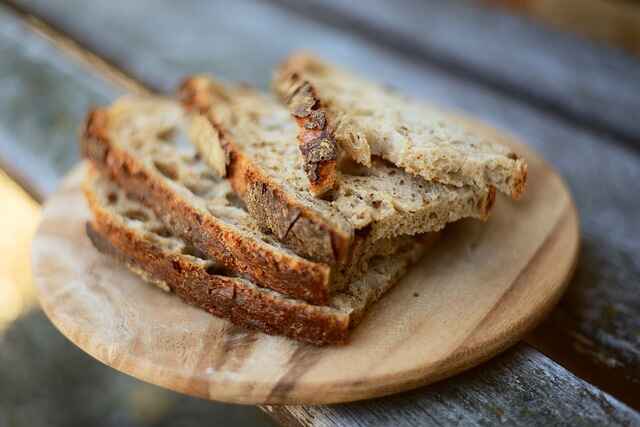The type of carbohydrate you choose to consume is crucial since some sources are healthier than others. The type of carbohydrates in the diet is more significant than their quantity, whether it be high or low. For instance, nutritious grains like quinoa, rye, barley, and whole wheat bread are healthier options than French fries or highly refined white bread. Here, let us check all about Carbs
What Are Carbohydrates? What Are The Functions Of Carbs?
Carbohydrate is one of the main nutrients found in the human body along with fats, vitamins, and proteins. These are basically sugar molecules that break down into glucose, which is then transformed into energy – maintaining biological processes and engaging in various physical activities. There are three main types of Carbs – Sugar (Simple), Starch (Complex) and Fiber (Complex).
Also Read: Apples and Weight Loss: Did you Know Apples Can Help you Lose Weight?

How Many Carbohydrates Do I Need? What Are The Recommended Amounts?
According to the American Dietary Guidelines, 45% to 65% of daily calories should come from carbs. So if you consume 2,000 calories per day, between 900 and 1,300 of those calories ought to come from carbs. In terms of grams per day, that equates to 225 to 325.
In case you are looking to lose weight or want to cut down your carbs, make sure you consult your doctor or nutritionist.
What Happens If There Is Excess Of Carbohydrates?
A high metabolic load is imposed on the body by consuming too many carbs. Over time, the body is forced to deal with high blood sugar levels, which are the result of digesting food’s sugar and starch. This causes weight gain, poor metabolic health, and a higher risk of heart disease.
What Are The Sources Of Carbohydrates? What Food Contains Carbohydrates?
Bread, beans, milk, popcorn, potatoes, cookies, spaghetti, soft drinks, corn, and cherry pie are just a few examples of the many healthy and bad meals that include carbs. They also take on various shapes. Sugars, fibres, and starches are the most widely used and plentiful types.

However, the quality of the carbohydrates is crucial, and some foods high in carbohydrates are superior to others:
- Unprocessed or lightly processed whole grains, vegetables, fruits, and beans are the healthiest sources of carbs. These foods also provide fiber, vitamins, minerals, and a variety of crucial phytonutrients, which all contribute to overall health.
- White bread, pastries, sodas, and other highly processed or refined meals are among the less healthy forms of carbs. These foods have simple carbs, which can make it difficult to lose weight and can increase the risk of diabetes and heart disease.
Deficiency Of Carbohydrates: The Possible Disorders And Their Symptoms
Sugar is produced through the breakdown of carbohydrates, and sugar serves as the body’s main energy source, allowing the muscles, brain, and other organs to operate normally. Lack of glucose can result in Hypoglycemia.
Symptoms Of Hypoglycemia Include:
- Hunger.
- Shakiness.
- Dizziness.
- Confusion.
- Difficulty speaking.
- Feeling anxious or weak.
Toxicity Of Carbohydrates In Case Of Excess Of Carbohydrates
The overconsumption of numerous forms of carbs, from digestible polysaccharides to refined sugars can cause adverse effects on health. This is known as “carbon toxicity,” as it collectively mediates harmful consequences on human health.
Also Read: Health Benefits Of Yogurt: Nutrition, Healthy Facts & Side Effects





